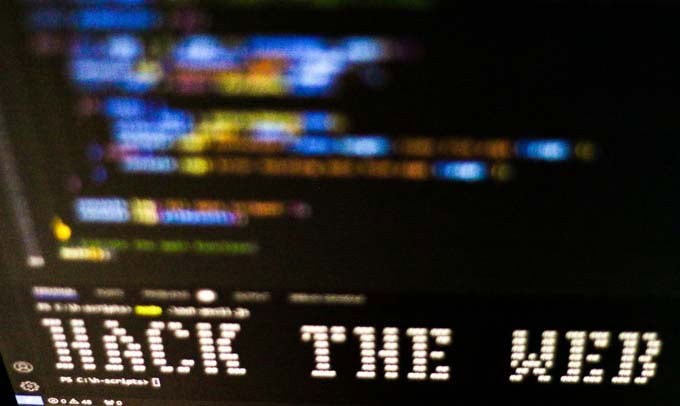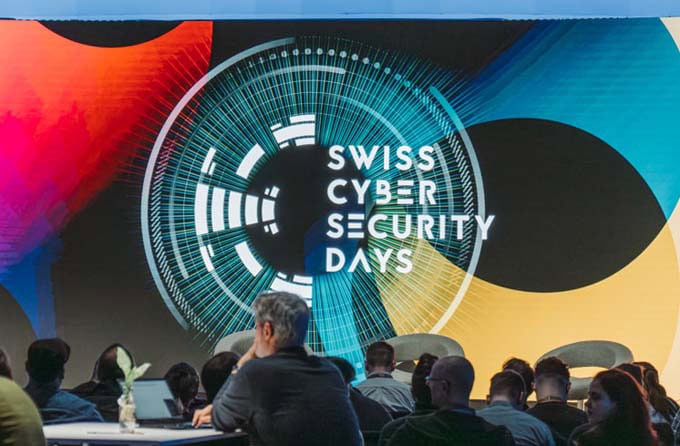Forecasts, opportunities, threats
Where and how could the first standards or quality benchmarks be set with regard to the "Internet of Things" (IoT)? Manuel P. Nappo, Head of the Center for Digital Business at the Hochschule für Wirtschaft, HWZ, on the current and future relevance of information and sensor technology.

Most experts agree on whether the "Internet of Things" (IoT) will revolutionize the corporate world: Information and sensor technology is developing very exponentially. Man and machine are merging via devices and apps that are systematically linked and analyze every area of life. Manuel P. Nappo, head of the Center for Digital Business and the MAS Digital Business, generally a social media expert, says:
"IoT primarily considers the importance and application of autonomously acting devices. By definition, this does not yet include humans themselves." However, many Swiss people already use the latest information technology, such as GPS, on many levels.
Researchers at IDC Switzerland expect this to increase the global data volume tenfold in less than three years - from the current 4.4 (2012) to 44 zettabytes (2017).
Whether networked cities, factories, homes, vans: the smallest computers determine the "Pulse of Time", but in which business areas should IoT systems really circulate and be used efficiently? Perhaps in areas like time and attendance tracking? Perhaps in general information coordination?
Perhaps some apps will soon overtake humans? In general, should all data be transferred to every computer and synchronized? Manuel P. Nappo puts quintessential questions about IoT into perspective.
Mr. Nappo, what could move the Swiss corporate world in terms of digital communication and IoT in five or ten years' time?
I will take the liberty of answering this question with a seminal event in Western civilization: When only about eight percent of the world's population...
With regard to IoT, a greater contrast is already emerging between the actual devices and the data originating from them.
While the people who were online at the time of 9/11, on September 11, are already on social media platforms such as Facebook every day. To the extent that this trend can be translated to other digital offerings, I expect shorter paths or business models between products and people. In terms of IoT, we are already seeing a greater contrast between the actual devices and the data that comes out of them. These two areas overlap. Today's business models move precisely in this periphery. We at the HWZ are therefore less concerned with standards and laws, but with the economic impact and ethics of social media, for example.
Is there perhaps a lack of a competence group for IoT development in Switzerland?
As you mentioned at the beginning of this interview, there is now the eco competence group in Germany, which critically deals with challenges of the smart environment. According to eco, in Germany it is also about changing business processes and organisational structures, establishing cross-industry standards (around security and privacy aspects), M2M applications, open-source sources and interoperability.
However, there is currently a lack of a defined circle of experts in Switzerland, even though more and more politicians are emphasising "privacy" in the context of Big Data trade. I would say that there is still a lack of position papers in Switzerland on issues relating to intelligent working and living spaces and their networking.
How would you say Swiss universities deal with modern communication tools and security technologies?
Our MAS Digital Business integrates focal points on digital communication in business areas. Our newest course, Disruptive Technologies, definitely addresses IoT. Otherwise, I would say that IoT is still largely a technical topic. At most, specialists are interested in sensory analyses of a hydroelectric power plant, for example. In the School of Business, however, the discussion is taking place about where the digital connections lie in the business world.
It is possible that colleagues from the ETH or from universities of applied sciences such as the ZHAW or the NTB, Interstate University of Applied Sciences, will deal with standards and norms in greater depth.
As a digital business expert, what risks of abuse do you see at the intersection of corporate communications and social media?
I would like to point out that in many business areas a so-called silo thinking dominates. Sales does not necessarily mean marketing or communication etc. in many companies. However, the "network" is much more complicated. Individual areas merge into one another; for example, we at the HWZ no longer make a distinction between communication and social media. When we talk about social media, we are talking about billions of users who are using increasingly modern devices.
In any case, the data produced and published must be handled responsibly.
There is still a lack of entrepreneurial paths and rules regarding the data transformation between first tech players like Google & Co. and users.
In which business areas could IoT models become established?
As mentioned, there is still a lack of entrepreneurial paths and rules regarding the data transformation between first tech players like Google & Co. and users. However, if producers such as V-Zug, Miele, Swisscom, Geberit start to diversify into more good services related to sensor technology, I expect to see an upswing in the current globally dominated IT scene. We at the HWZ believe that Swiss companies such as V-Zug or Schindler, but also IT security providers are moving into the smart home sector.
Similarly, the NEST project from Empa in Dübendorf, which is pushing real-world conditions for electricity and water consumption prior to market launch with its networked demonstration trials, could play a key role in the future.
What potential risks and control mechanisms do you see with regard to digital payment systems?
Imagine that you are presented with additional offers during ordering processes. Such offers could be additional storage or even power packages. You order these kinds of subscription-like units for an indefinite period of time; however, these capacities are linked to payments in the micro-range. At first, the cost of storage packages may not seem that high to you, but there may be a new offer a few fractions later.
Accordingly, I believe that new consumer platforms will also evolve to already established sites like Comparis.
In many business areas, a so-called silo thinking dominates.
Digital, contactless payment is becoming an increasingly relevant topic. Various Swiss companies are already trying their hand in this area. - A future scenario: Perhaps we will soon be able to travel without banknotes and paper documents. If someone uses an invalid credit card and wants to travel from A to B with it, they may receive the buses of a road-price ticketing provider sent directly to their e-banking account.
Isn't time running out with regard to evolving digitality in most Swiss companies and in their IT architectures?
When smart things communicate with each other, identify and organize themselves, this should be done as responsibly, efficiently and independently as possible. Accordingly, frameworks and developer tools for building M2M applications could be developed open source. Ultimately, there are also many SMEs in Switzerland. It would be evident for Switzerland as a location that platforms and smaller companies develop autonomously, independently of Google & Co.









